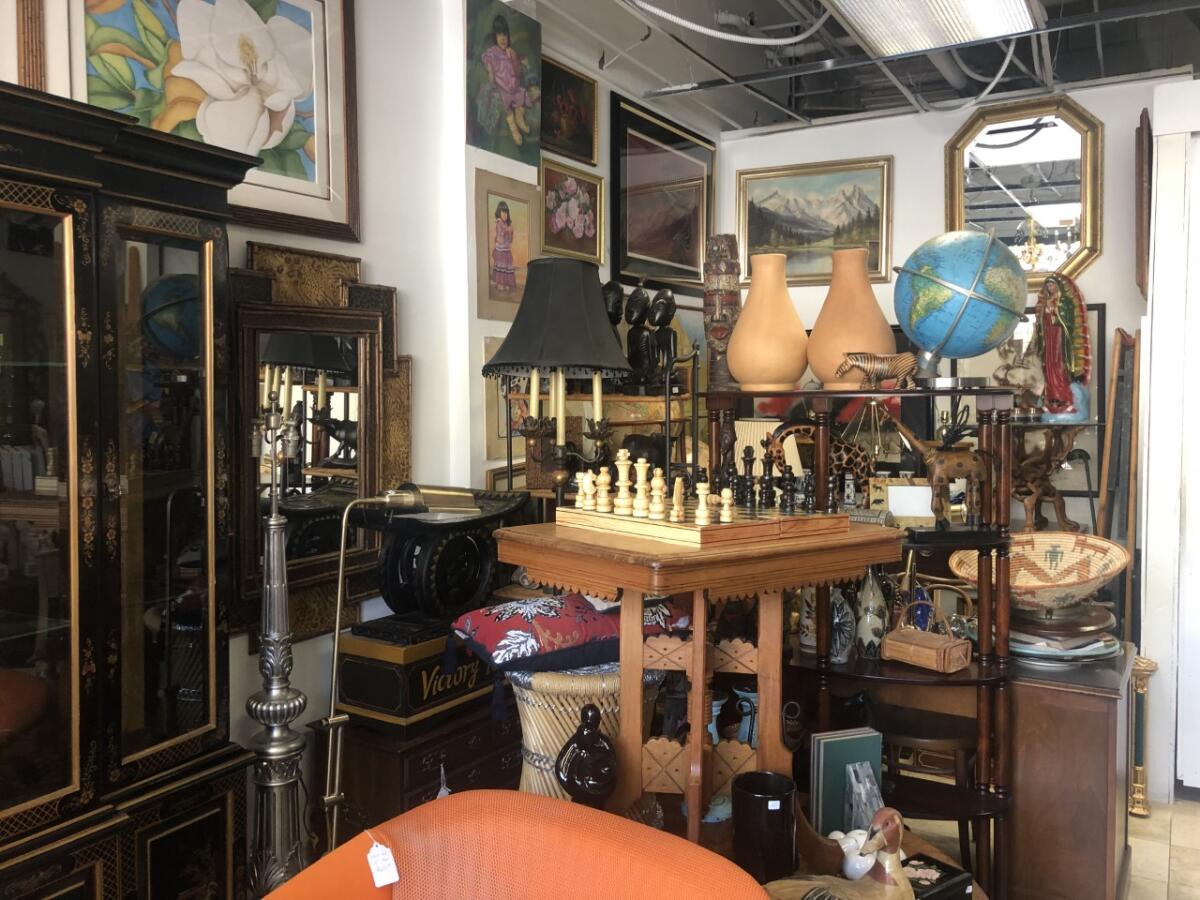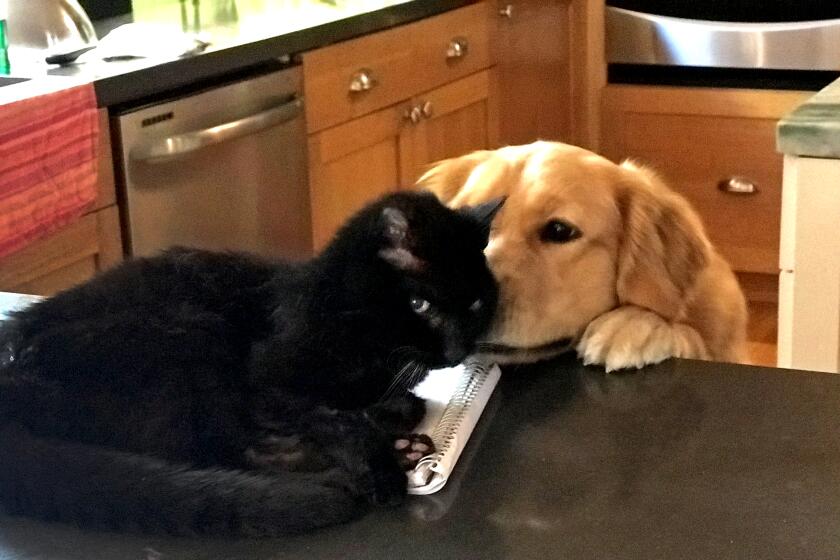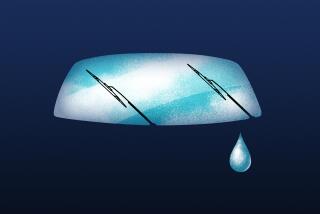Column: What is kipple, and how did it take over my life?

It’s coming up on two years since my father died at age 91. I miss him terribly, of course, but his death left me with a personal struggle I had not anticipated.
While you might understandably think his death left a void in my life, it did quite the opposite.
His death left me with so … much … stuff. He’d lived in the same house for more than 30 years, and even though he’d engaged in some half-hearted Swedish death cleaning — a decluttering aimed at easing burdens on one’s survivors — what he did, mostly, was just put things in boxes. Boxes I had to open to figure out what they contained after he died.
It is hard to describe the feelings of dread and fatigue when I open yet another drawer and have to decide what to keep, what to donate, and what to toss: rubber bands, flashlights, expired passports, ancient tech, electric cords for ancient tech, headphones, cuff links, tie bars, his collection of small colorful bottles, his various higher education degrees (all framed), his uncle’s elementary school diploma (also framed), tchotchkes from his travels that only have meaning to me because they once belonged to him. And, of course, a small library’s worth of books.
I want to keep all of it, but I also want to pile it up and torch it.
Last week, I was bemoaning this dilemma when Anton, my future son-in-law said, “Yeah, all the kipple.”
Kipple?
I thought it might be a Yiddish or German word, but Anton told me it was coined by the great science fiction writer Philip K. Dick in his 1968 dystopian novel “Do Androids Dream of Electric Sheep?”
For those who need a plot refresher — or have not seen the 1982 movie “Blade Runner,” which was based on the novel — the story takes place in the future, after Earth has been mostly destroyed by a nuclear global conflict, World War Terminus. Most animal life has been extinguished. The population has emigrated to “off-world colonies.”
His political outrage could be exhausting, especially if you agreed with him. Many times, I asked him to stop yelling at me, and he’d say, ‘I’m not yelling at you, I’m yelling at them.’
The word is used by the book’s protagonist, Rick Deckard, a bounty hunter assigned to kill some uncannily human-like robots who have escaped involuntary servitude on Mars and returned to Earth, where they try to pass as people.
So what, exactly, is kipple?
“Kipple,” Deckard explains in the book, “is useless objects, like junk mail or match folders after you use the last match or gum wrappers or yesterday’s homeopape. [Dick’s incredibly prescient vision of a digital newspaper.] When nobody’s around, kipple reproduces itself. For instance, if you go to bed leaving any kipple around your apartment, when you wake up the next morning there’s twice as much of it.”
Boom!
Every once in a while, a word comes along that perfectly describes a feeling or a situation that felt, until that very moment, amorphous, hazy or indescribable. How did the junk drawer become so jammed? Sometimes when I look at its jumble of stuff, I want to curl up into a ball and go to sleep because I don’t know whether to keep things or toss them, and the indecision is exhausting.
Rolls of blue tape, green tape and black tape? They all eventually come in handy, right? What about the small plastic magnifying glass? And all those stick-on felt circles that protect the wood floors from scratches? If I toss them, will I need them next week? Why can’t I make up my mind? The kipple is killing me!
Before personal computers became ubiquitous, and we began carrying around small devices that put the entire sum of human knowledge in the palm of our hands, I used to keep a typed list of words I’d just discovered.
Before he died, I promised my father that I would care for Inky, his cat, no matter what. It hasn’t been easy. I had no idea she would wreck my home.
I discovered that if you want to expand your vocabulary, there is nothing like a William Styron novel. When I was in graduate school, “Sophie’s Choice” provided a bounty of new-to-me words, including “coprolalia,” the compulsive use of obscene language and “philoprogenitive,” which means having many offspring.
I’m sure my ancient list still exists, buried somewhere in all the kipple.
As a person who makes a living composing with words, I am always delighted to stumble upon new words and phrases that hit just the right note.
This summer, for instance, I encountered the concept of “California sober,” the meaning of which varies, but generally describes people who use cannabis but not alcohol. The phrase was popularized in a 2018 song by Demi Lovato, who used to be California sober but now says she is “sober sober.”
But I digress.
I’m not exactly sure that knowing I’m drowning in kipple will help me to uncluttered shores any faster than before.
What, for instance, is a daughter supposed to do with her father’s handwritten diary from 1986, the year he spent teaching in Buenos Aires? His 1937 elementary school songbook? Or his old wooden shoeshine box?
In the long run, maybe nothing I do will matter very much.
As Dick’s fictional futuristic bounty hunter put it:
“No one can win against kipple, except temporarily and maybe in one spot, like in my apartment I’ve sort of created a stasis between the pressure of kipple and nonkipple, for the time being. But eventually I’ll die or go away, and then the kipple will again take over.… The entire universe is moving toward a final state of total, absolute kippleization.”
Pretty soon, I’m going to have to move on from the junk drawer and the house to the garage. Before I do, though, I think I need to lie down for a little while.
More to Read
A cure for the common opinion
Get thought-provoking perspectives with our weekly newsletter.
You may occasionally receive promotional content from the Los Angeles Times.









